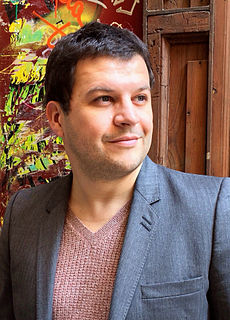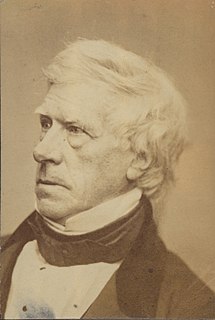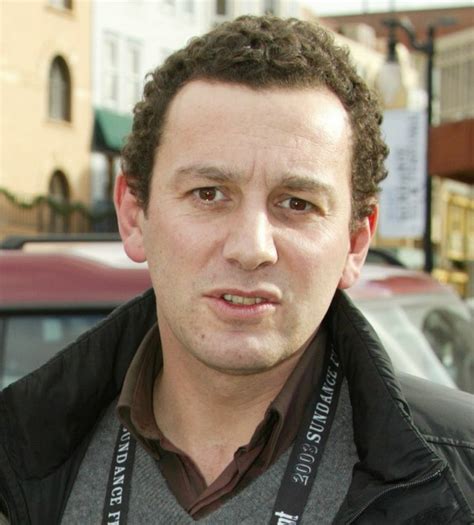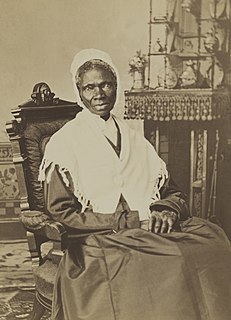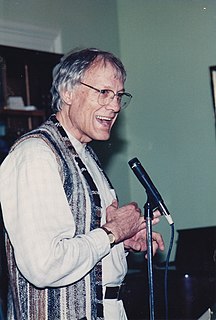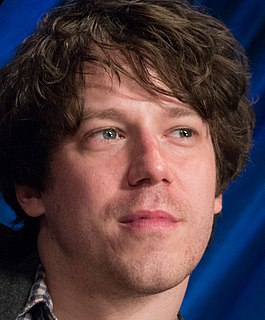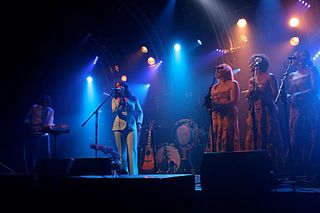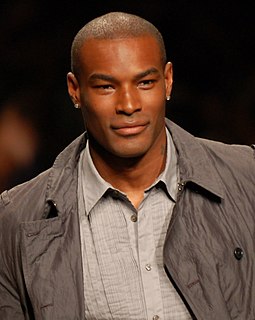Top 338 Thirteen Quotes & Sayings - Page 6
Explore popular Thirteen quotes.
Last updated on November 18, 2024.
The mediocre mind has no capacity for understanding. It is stuck somewhere near thirteen years in its mental age, or even below it. The person may be forty, fifty, seventy years old - that does not matter, that is the physical age. He has been growing old, but he has not been growing up. You should note the distinction. Growing old, every animal does. Growing up, only a few human beings manage.
If we are to avoid that catastrophe [a nuclear World War III], a system of world order — preferably a system of world government — is mandatory. The proud nations someday will see the light and, for the common good and their own survival, yield up their precious sovereignty, just as America's thirteen colonies did two centuries ago. When we finally come to our senses and establish a world executive and parliament of nations, thanks to the Nuremburg precedent we will already have in place the fundamentals for the third branch of government, the judiciary.
The extremists are talking too loudly, and everyone is convinced that only he is on the right side. It’s not just Jews against Arabs. It’s the Orthodox versus those who don’t think they can keep all six hundred and thirteen commandments of the Bible. It’s rich people versus poor people. At some point, something came over Israel so that everyone has his own ideas—and everyone else is an enemy. It’s a dialogue among deaf people and it is getting more and more serious.
A decline in supervision is not the entire story. Even in the fifties there were undersupervised children . . . who nevertheless did not become pregnant at thirteen . . . and who did not smoke anything stronger than an occasional Camel or Lucky Strike. . . . It took a combination of unsupervised children and a permissive, highly charged sexual atmosphere and an influx of easily acquired drugs and the wherewithal to buy them to bring about precocious experimentation by young and younger children. This occurred in the mid-seventies.
We have to make sure that college is accessible and affordable. Two years ago, I stood here and called upon our institutions of higher learning to develop plans for degrees that cost no more than $10,000. There were plenty of detractors at that time who insisted it couldn't be done. However, that call inspired educators at colleges and universities across our state to step up to the plate. Today, I'm proud to tell you that thirteen Texas universities have announced plans for a $10,000 degree.
They were now both ready, not to begin from scratch, but to continue with a love that had survived for thirteen years in hibernation. They were no longer travellers without baggage. They were no longer twenty. They'd both been around the block a bit and had suffered without the other. They'd both lost their way without the other. Each had tried to find love with other people. But all that was now finished.
As a writer, politician, scientist, and businessman, [Ben] Franklin had few equals among the educated of his day-though he left school at ten. (...)Boys like Andrew Carnegie who begged his mother not to send him to school and was well on his way to immortality and fortune at the age of thirteen, would be referred today for psychological counseling; Thomas Edison would find himself in Special Ed until his peculiar genius had been sufficiently tamed.
Basically, I've reached the point where I've lost any direct relationship to any of the editors I used to have. I suspect I'll have to pay to publish this myself, and I think a lot about about putting out fifty copies. I used to think about hogwash like my legacy and silly things like that. But I feel like if I never have another book out, I've done okay, I've had like twelve or thirteen little books, and I won't be upset about this on my death bed.
Personally, I never understood the power of having books written about your experience - whatever that experience may be - until I wrote one and started hearing from teens. I just got an email from a reader who said that "Thirteen Reasons Why" was the first time they had felt understood. A book shouldn't be anybody's first time feeling understood and that's where censorship bothers me. These books need to be out there.
I haven't written for a few days, because I wanted first of all to think about my diary. It's an odd idea for someone like me to keep a diary; not only because I have never done so before, but because it seems to me that neither I-nor for that matter anyone else-will be interested in the unbosomings of a thirteen -year -old schoolgirl. Still, what does that matter? I want to write, but more than that, I want to bring out all kinds of things that lie buried deep in my heart.
But you're almost eighteen. You're old enough. Everyone else is doing it. And next year someone is going to say to someone else 'but you're only sixteen, everyone else is doing it' Or one day someone will tell your daughter that she's only thirteen and everyone else is doing it. I don't want to do it because everyone else is doing it.
A piratical ghost story in thirteen ingenious but potentially disturbing rhyming couplets, originally conceived as a confection both to amuse and to entertain by Mr. Neil Gaiman, scrivener, and then doodled, elaborated upon, illustrated, and beaten soundly by Mr. Cris Grimly, etcher and illuminator, featuring two brave children, their diminutive but no less courageous gazelle, and a large number of extremely dangerous trolls, monsters, bugbears, creatures, and other such nastiness, many of which have perfectly disgusting eating habits and ought not, under any circumstances, to be encouraged.
When Babe Didrickson Zaharias, often called the 'athletic phenomenon of all time,' won the British woman's gold tournament, people said of her what they had said many times before: "Oh, she's an automatic champion, a natural athlete." When Babe started golfing in earnest thirteen years ago she hit as many as 1,000 balls in one afternoon, playing until her hands were so sore they had to be taped.
Do you have a Wish?' he asked, referring to this organization, The Genie Foundation, which is in the business of granting sick kids one wish. 'No' I said. 'I used my Wish pre-Miracle.' 'What'd you do?' I sighed loudly. 'I was thirteen,' I said. 'Not Disney,' he said. I said nothing. 'You did not go to Disney World.' I said nothing. 'HAZEL GRACE!' he shouted. 'You did not use your one dying Wish to go to Disney World with your parents.' 'Also Epcot Center,' I mumbled. 'Oh, my God,' Augustus said. 'I can't believe I had a crush on a girl with such cliché wishes.
The same Being that fashioned the insect, whose existence is only discerned by a microscope, and gave that invisible speck a system of ducts and other organs to perform its vital functions, created the enormous mass of the planet thirteen hundred times larger than our earth, and launched it in its course round the sun, and the comet, wheeling with a velocity that would carry it round our globe in less than two minutes of time, and yet revolving through so prodigious a space that it takes near six centuries to encircle the sun!
Do you suppose you will look the same when you are an old woman as you do now? Most folk have three faces—the face they get when they’re children, the face they own when they’re grown, and the face they’ve earned when they’re old. But when you live as long as I have, you get many more. I look nothing like I did when I was a wee thing of thirteen. You get the face you build your whole life, with work and loving and grieving and laughing and frowning.
When I was thirteen, I had a nervous breakdown, and I was put into this grown-up mental hospital with all these 50-, 60-year-old men and women. This big, Victorian mental house. There were like five boys in there, all my age, looked after by this woman who was 22 or 23. And it was like "Empire of the Sun" meets "One Flew Over the Cuckoo's Nest"-type of arrangement where you've got this young boy overcoming and becoming heroic in the face of this awful place.
That movie [A Series of Unfortunate Events] told four books in two hours, and we have two hours per book. So we have eight hours to tell four books, and if people watch we'll get to tell more of them. There's only thirteen books, so there's only going to be two more seasons, but that allows for a lot of time to be in character and to maintain character.
My life after childhood has two main stories: the story of the hustler and the story of the rapper, and the two overlap as much as they diverge. I was on the streets for more than half of my life from the time I was thirteen years old. People sometimes say that now I'm so far away from that life - now that I've got businesses and Grammys and magazine covers - that I have no right to rap about it. But how distant is the story of your own life ever going to be? The feelings I had during that part of my life were burned into me like a brand. It was life during wartime.
Often low-income parents give their children every other thing they need for successful participation in school and the world of work except the planning and organizing skills and habit patterns needed to operate in complex settings. Many intelligent and able college students from low-income backgrounds confront these deficits when faced with a heavy assignment load. . . . These patterns are best acquired at an early age and need to be quite well developed by late elementary school or twelve or thirteen years of age.
Taking the kids from our districts, forcing them to kill one another while we watch – this is the Capitol’s way of reminding us how totally we are at their mercy. How little chance we would stand of surviving another rebellion. Whatever words they use, the real message is clear. “Look how we take your children and sacrifice them and there’s nothing you can do. If you lift a finger, we will destroy every last one of you. Just as we did in District Thirteen
Education is huge for me. I went to public school until I turned thirteen, and was lucky enough to afford college once I became successful as an actress. I cannot believe that quality education costs as much as it does in this country. Ghetto Film School is a remarkable public high school in New York City where students get to learn to express themselves through filmmaking, and have hands-on access to equipment.
Then, when the Fed's fire hoses started spraying an elephant soup of liquidity injections in every direction, and its balance sheet grew by $1.3 trillion in just thirteen weeks compared to $850 billion during its first ninety-four years, I became convinced that the Fed was flying by the seat of its pants, making it up as it went along. It was evident that its aim was to stop the hissy fit on Wall Streetm and that the thread of a Great Depression 2.0 was just a cover story for a panicked spree of money printing that exceeded any other episode in recorded human history.
The last great unknown, in terms of physiological training, is the optimum length of a piece. Is three minutes enough? Is ten minutes too much? No one knows. Perhaps someday the question will be answered-we'll find out that thirteen minutes is the perfect length for a training piece when preparing for a 2000 meter race. Until then, coaches will continue exploring the whole scale, up and down, from thirty seconds to sixty minutes and more, in hopes of capturing the optimum time.
And ain't I a woman? Look at me! Look at my arm! I have ploughed and planted, and gathered into barns, and no man could head me! And ain't I a woman? I could work as much and eat as much as a man - when I could get it - and bear the lash as well! And ain't I a woman? I have borne thirteen children, and seen most all sold off to slavery, and when I cried out with my mother's grief, none but Jesus heard me! And ain't I a woman?
I'm only thirteen, so I have role-models! But I've sort of experienced... my sister has always been my role-model because I've always seen her. She's been acting my whole life and she's grown up on film, so it's neat for me to get to travel around and do interviews, because I've always seen her doing it.
When I started out playing guitar and singing, I was about twelve, going on thirteen. The role models for me back then were the folk singers. They all had these high, really nice voices and ranges, like Judy Collins and Joan Baez, and then later, of course, Joni Mitchell and Linda Ronstadt. I decided early on that I was going to learn how to write songs really, really well, because I didn't want to have to compete as a singer. I didn't feel that it was my strong point.
it's weird how much people change. for example, when i was a kid i loved all of these things..and over time all of them just fell away, one after another, replaced by friends and IMing and cell phones and boys and clothes. it's kind of sad, if you think about it. like there's no continuity in people at all. like something ruptures when you hit twelve, or thirteen, or whatever the age is when you're no longer a kid but a "young adult," and after that you're a totally different person. maybe even a less happy person. maybe even a worse one.
An old Arabian fable tells of a prince imprisoned in a castle which had thirteen windows. Twelve of these windows overlooked lovely scenes, while the thirteenth looked down on the black ash heaps of the city. Ignoring the twelve windows, the prince always looked out through the thirteenth. It is so often true that whether a person carries with him an atmosphere of gloom and depression or one of confidence and courage depends on his individual outlook.
Here’s a current example of the challenge we face. At the height of its power, the photography company Kodak employed more than 140,000 people and was worth $28 billion. They even invented the first digital camera. But today Kodak is bankrupt, and the new face of digital photography has become Instagram. When Instagram was sold to Facebook for a billion dollars in 2012, it employed only thirteen people. Where did all those jobs disappear to? And what happened to the wealth that all those middle-class jobs created?
When Howard Marks came out of prison, years later, I met him at a concert in South Wales; I was a young whippersnapper and Howard was kind of an outlaw hero. I said to him - and it's on tape, a cousin of his filmed our meeting - I said, "If you write a book, I want to play you in a movie." He said, "Let's shake on it," and we did. Thirteen years later, there we were, making the movie.
In 1989, thirteen nations comprising 1,695,000 people experienced nonviolent revolutions that succeeded beyond anyone's wildest expectations . . . If we add all the countries touched by major nonviolent actions in our century (the Philippines, South Africa . . . the independence movement in India . . .) the figure reaches 3,337,400,000, a staggering 65% of humanity! All this in the teeth of the assertion, endlessly repeated, that nonviolence doesn't work in the 'real' world.
One of the very few reasons I had any respect for my mother when I was thirteen was because she would reach into the sink with her bare hands - bare hands - and pick up that lethal gunk and drop it into the garbage. To top that, I saw her reach into the wet garbage bag and fish around in there looking for a lost teaspoon. Bare hands - a kind of mad courage.
There's a screen direction in the script for the pilot where it says, 'Jim Harper, mid-20s, enters,' and it said something to the effect of: 'He's confident without being cocky. He has no idea that he could be considered attractive, because he saw All The President's Men when he was thirteen and never looked up.' It was just a great little gem of a screen direction, and I felt immediately from just that, that I had a good idea of how to play this guy.
I took my coffee into the dining room and settled down with the morning paper. A woman in New York had had twins in a taxi. A woman in Ohio had just had her seventeenth child. A twelve-year-old girl in Mexico had given birth to a thirteen-pound boy. The lead article on the woman's page was about how to adjust the older child to the new baby. I finally found an account of an axe murder on page seventeen, and held my coffee cup up to my face to see if the steam might revive me.
Everything is starting to make a little more sense to me now. I love the idea that, first of all when I made the record I don't look at the music by classifying it. People have a problem classifying me as pop, or rock, or folk, or alt. The beauty for me is that a thirteen year old girl can fall in love with the record and so can her mom. I tend to gravitate towards artists that are timeless and don't sound dated.
In fashion, there's a lack of strong male images. And there's a huge lack of strong African American images. I noticed over the past thirteen years, Ralph and those guys have used guys that looked similar to me. And I was happy for those guys, but eventually I said, 'Enough is enough, I'm just going to go in and take my job back.'
I didn't fit into the Christian college my parents sent me to. I felt tarnished by tragedy, between my brother's death and Escuela Caribe, and everyone else seemed so carefree and happy and praising God. I couldn't stand happy people for a long time, and was plagued by chronic migraines and stomach aches. I'd say between age thirteen and twenty-three was the most miserable time of my life. I wrote Jesus Land because I wanted there to be a record of David's life. I was surprised that so many people read it, and felt moved by it.





